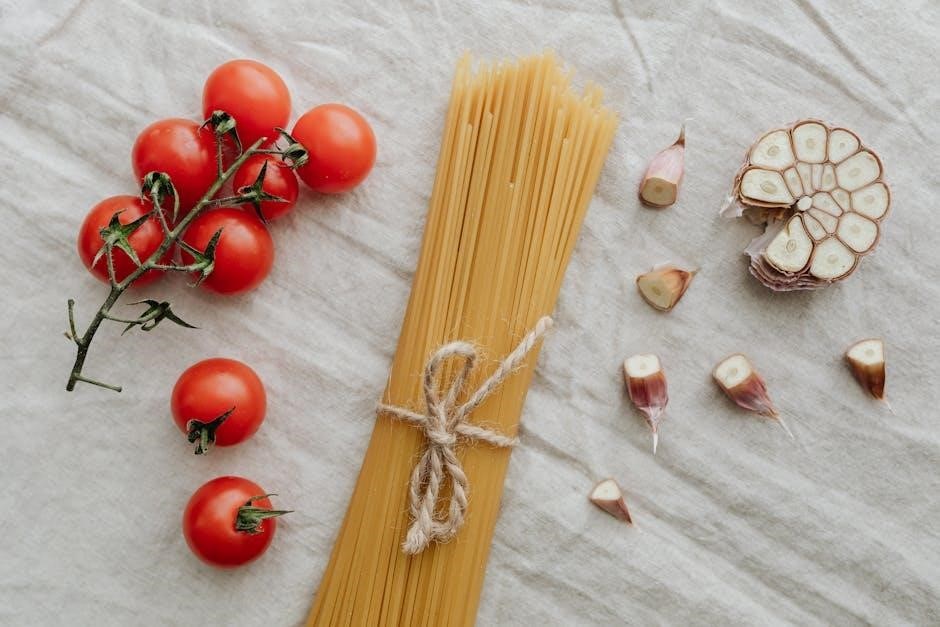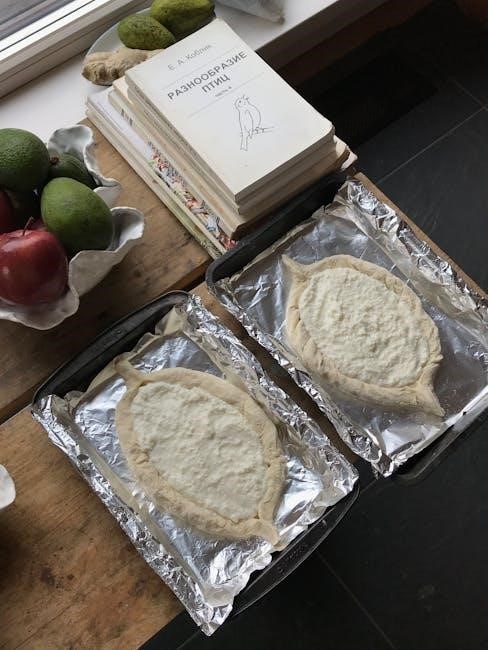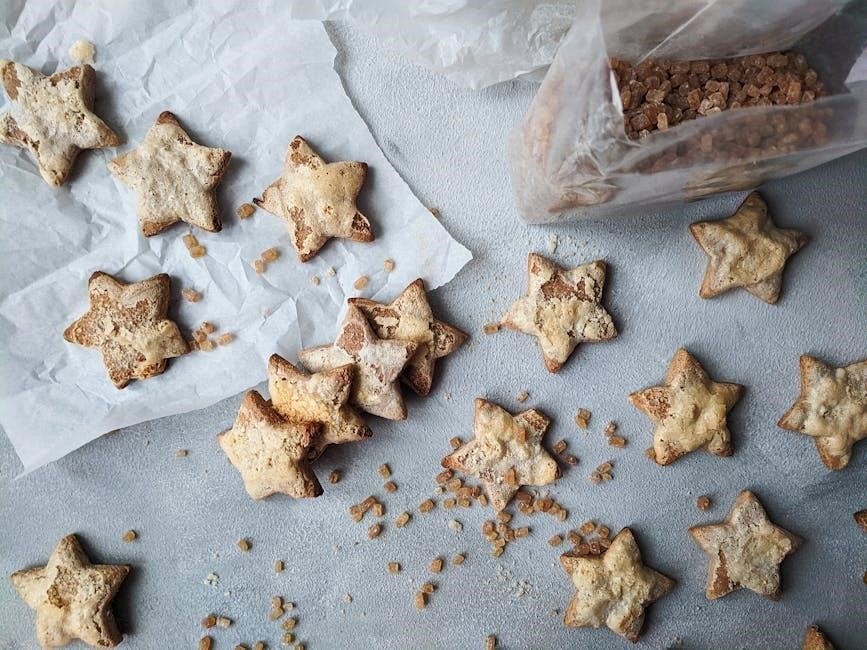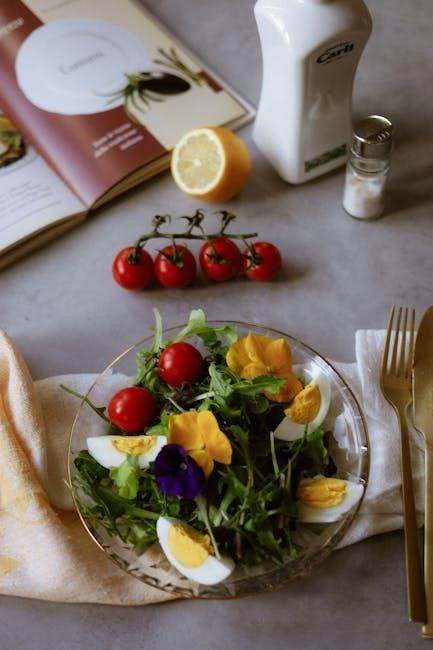The R Bioinformatics Cookbook is a comprehensive guide offering practical recipes for bioinformatics tasks using R. It covers RNA-seq, genomics, and data visualization, providing real-world solutions.
What is the R Bioinformatics Cookbook?
The R Bioinformatics Cookbook is a comprehensive guide offering practical recipes for bioinformatics tasks. It provides a recipe-based approach to tackle common and complex challenges in bioinformatics using R and Bioconductor. Targeted at researchers, students, and bioinformaticians, it covers RNA-seq, genomics, phylogenetics, and data visualization. With over 80 recipes, it helps model and handle real-life biological data using modern R libraries, making it an essential resource for computational biology tasks.
Who is the Target Audience?
The R Bioinformatics Cookbook is designed for researchers, graduate students, and professionals in bioinformatics and computational biology. It suits those with intermediate to advanced R programming skills, offering practical solutions for real-world biological data analysis. The cookbook is ideal for anyone seeking to apply R and Bioconductor to genomics, RNA-seq, and data visualization, making it a valuable resource for both academic and industry professionals.

Key Features of the Cookbook
The cookbook offers a recipe-based approach, covering RNA-seq, genomics, and data visualization. It utilizes modern R packages and Bioconductor tools for practical bioinformatics tasks and analysis.
A Recipe-Based Approach to Bioinformatics
The R Bioinformatics Cookbook employs a structured, recipe-based method to tackle complex bioinformatics challenges. Each chapter presents clear, step-by-step solutions, enabling users to apply R packages and Bioconductor tools effectively. This approach ensures that even intricate tasks, like RNA-seq analysis and data visualization, become accessible. By focusing on practical examples, the cookbook bridges theory and application, making bioinformatics analysis intuitive and efficient for researchers and analysts alike.
Modern R Packages for Bioinformatics Tasks
The R Bioinformatics Cookbook highlights the use of modern R packages like Bioconductor, dplyr, and ggplot2 to streamline bioinformatics workflows. These tools enable efficient data manipulation, visualization, and analysis, making complex tasks manageable. The cookbook demonstrates how to integrate these packages for genomics, proteomics, and machine learning applications, ensuring researchers can leverage cutting-edge methods for high-quality results in their biological studies.

Using the Cookbook for Bioinformatics Analysis
The cookbook provides hands-on recipes for RNA-seq, genomics, and data visualization, enabling researchers to apply R and Bioconductor effectively in real-world bioinformatics projects.
RNA-Seq Analysis and Genomics
The R Bioinformatics Cookbook offers detailed recipes for RNA-seq analysis, covering preprocessing, alignment, and differential expression. It also explores genomics tasks, such as variant calling and genome visualization, leveraging Bioconductor packages like DESeq2 and edgeR. These practical guides enable researchers to efficiently analyze genomic data and interpret results, making it a valuable resource for both novices and experienced bioinformaticians.
Phylogenetics and Data Visualization
The R Bioinformatics Cookbook provides in-depth guidance on phylogenetic analysis and data visualization. It utilizes R packages like ggplot2 and ggtree to create informative visualizations, enabling researchers to explore evolutionary relationships and present complex data clearly. The cookbook also covers phylogenetic tree construction and visualization, making it an essential resource for bioinformaticians seeking to interpret and communicate their findings effectively through precise and engaging visual representations.

The Role of Bioconductor in the Cookbook
Bioconductor is a core tool in the cookbook, providing essential resources for genomics and proteomics. It supports RNA-seq, ChIP-seq, and other protocols, enabling advanced bioinformatics analysis.
Essential Tools for Genomics and Proteomics
Bioconductor provides essential tools for genomics and proteomics, enabling RNA-seq, ChIP-seq, and other protocols. Key packages like DESeq2 and edgeR facilitate differential expression analysis, while tools like GenomicRanges and BSgenome handle genomic data. These resources streamline workflows for genomics and proteomics, offering robust solutions for complex biological data analysis.
Protocols for RNA-Seq and ChIP-Seq
The R Bioinformatics Cookbook provides detailed protocols for RNA-Seq and ChIP-Seq analysis. It guides through workflow steps, from data preprocessing to differential expression analysis using Bioconductor packages like DESeq2 and edgeR. The book also covers quality control, read alignment, and peak calling for ChIP-Seq, offering practical solutions for handling high-throughput sequencing data effectively.

Practical Applications of the Cookbook
The R Bioinformatics Cookbook offers practical, real-world applications, enabling researchers to handle biological data, perform genomics tasks, and visualize results effectively using R libraries daily.
Data Visualization in Bioinformatics
Data visualization is crucial in bioinformatics for interpreting complex biological data. The R Bioinformatics Cookbook provides recipes for creating informative plots using R libraries like ggplot2. These visualizations help researchers identify patterns in gene expression, genomic variations, and protein interactions. The cookbook offers practical examples to customize visualizations, ensuring clear communication of scientific findings. By mastering these techniques, bioinformaticians can effectively convey insights from large datasets.
Handling Real-Life Biological Data
Managing real-life biological data requires robust techniques to ensure accuracy and reproducibility. The R Bioinformatics Cookbook offers over 80 recipes for handling diverse biological datasets. From RNA-seq to genomics, the cookbook provides practical solutions using modern R libraries. It addresses challenges such as data cleaning, normalization, and integration, enabling bioinformaticians to extract meaningful insights efficiently. These methods are tailored to real-world scenarios, making the cookbook an invaluable resource for researchers.

Resources and Community Support
The R Bioinformatics Cookbook offers extensive resources, including a free PDF version and additional materials. Community support is available through forums and updates, ensuring continuous learning.
Accessing the PDF Version

The R Bioinformatics Cookbook PDF is available for easy access, offering a convenient format for learning. Readers can download the PDF directly from the publisher’s website or through platforms like Amazon. Purchasing the print or Kindle version includes a free DRM-free PDF, ensuring accessibility. Additionally, community forums and official channels provide updates and support, making it straightforward to obtain and utilize the PDF version effectively.
Additional Materials and Updates
The R Bioinformatics Cookbook offers additional materials, including datasets and scripts, to aid in practical applications. With over 80 recipes covering RNA-seq and genomics, the book is supported by community engagement and regular updates. These resources ensure users have access to the latest tools and methodologies, keeping the cookbook a dynamic and indispensable resource for bioinformatics tasks.

Why Choose the R Bioinformatics Cookbook?
Choose the R Bioinformatics Cookbook for its practical, recipe-based approach to solving real-world bioinformatics challenges. It provides modern R tools and real-world examples, making it ideal for bioinformatics tasks.
Unique Challenges and Solutions
The R Bioinformatics Cookbook addresses both common and uncommon challenges in bioinformatics. It provides practical solutions using real-world examples, enabling researchers to tackle complex tasks like RNA-seq analysis and data visualization effectively. The book’s recipe-based approach ensures that readers can quickly implement solutions, making it an invaluable resource for bioinformatics professionals and students alike seeking to overcome specific data analysis hurdles efficiently and accurately.
Real-World Examples and Case Studies
The R Bioinformatics Cookbook provides over 80 practical recipes and real-world examples, covering tasks like RNA-seq analysis, genomics, and data visualization. Case studies demonstrate how to handle biological data, from preprocessing to visualization, ensuring readers can apply these methods to their own research. By focusing on modern R libraries, the cookbook bridges theory and practice, making complex bioinformatics tasks accessible through tangible, reproducible examples.

How to Access the R Bioinformatics Cookbook PDF
The R Bioinformatics Cookbook PDF can be purchased on Amazon or downloaded for free from specific links. Purchase includes a free DRM-free PDF version.
Purchase Options and Free Downloads
The R Bioinformatics Cookbook PDF is available for purchase on Amazon in print or Kindle format, with the latter including a free PDF download. Additionally, free downloads are accessible through Packt Publishing and other platforms. The PDF is licensed under MIT, allowing flexible usage. It covers over 80 recipes for bioinformatics tasks, including RNA-Seq, genomics, and data visualization, making it a valuable resource for bioinformatics professionals and researchers.
Licensing and Usage Rights
The R Bioinformatics Cookbook PDF is distributed under the MIT license, allowing unrestricted use, sharing, and adaptation. The DRM-free PDF ensures flexibility for users, enabling access across multiple devices without restrictions. This licensing model supports open access and collaboration, aligning with the principles of bioinformatics research and education. The cookbook’s content is freely available for download, promoting widespread adoption and application in academic and professional settings.
The R Bioinformatics Cookbook PDF is a vital resource, empowering researchers and analysts with practical, real-world solutions in bioinformatics, fostering innovation and advancing computational biology.
Final Thoughts on the Cookbook
The R Bioinformatics Cookbook stands as a comprehensive, invaluable resource for bioinformatics professionals and researchers. Its recipe-based approach simplifies complex tasks, offering practical solutions and real-world applications. With updated tools and modern R packages, it bridges theory and practice, making it indispensable for tackling genomic, proteomic, and RNA-seq challenges. The cookbook’s focus on actionable examples and community support ensures it remains a cornerstone for advancing bioinformatics research and education.
Future Directions in R Bioinformatics
The future of R bioinformatics is promising, with advancements in machine learning and genomics. The cookbook highlights the integration of modern libraries, enabling efficient handling of biological data. As computational biology evolves, R’s role in bioinformatics will expand, offering innovative solutions for complex datasets. The cookbook’s second edition aligns with these trends, providing a solid foundation for future research and applications in the field.